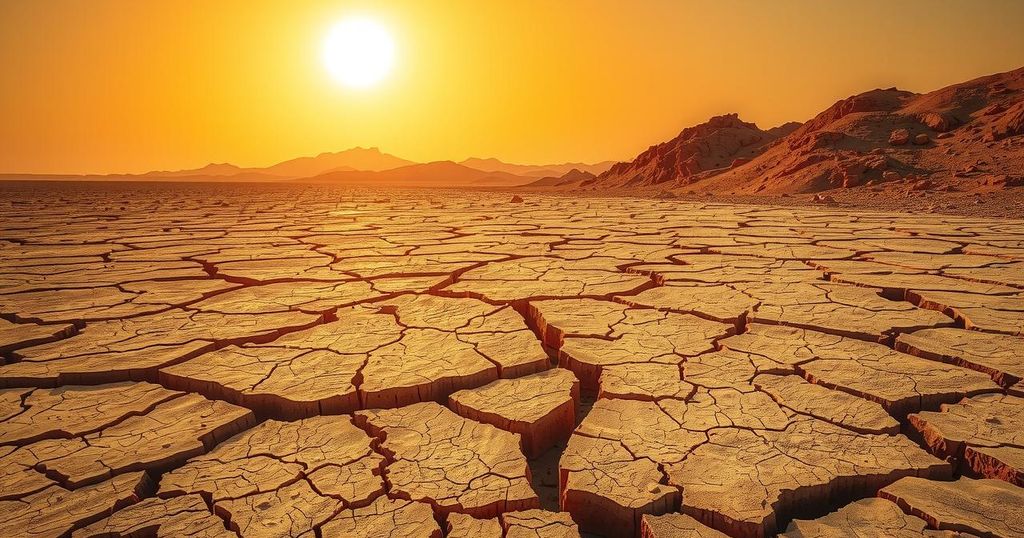Women and girls in South Sudan are facing increased health risks and inequality due to climate change, particularly during record-breaking heatwaves. The WWA reports that recent extreme temperatures were intensified by human-caused warming, leading to school closures and exacerbating existing gender disparities. With worsening heat conditions, urgent measures are necessary to mitigate these challenges and support vulnerable populations.
Recent research indicates that women and girls in South Sudan are disproportionately affected by the adverse effects of climate change, particularly as the country grapples with extreme heat. Published by the World Weather Attribution (WWA) group prior to International Women’s Day on March 8, the findings reveal that February’s heatwave was intensified tenfold by human-induced climate change, raising temperatures by 2 degrees Celsius.
In February, the heatwave caused numerous students in Juba to suffer from heat-related illnesses, resulting in the temporary closure of schools—a recurring occurrence during such extreme temperatures, which soared to 45 degrees Celsius in March of the previous year. Typically, February does not experience such high temperatures, making this situation particularly alarming according to the researchers.
The design of most South Sudanese schools, featuring iron roofs without air conditioning, contributes to dangerously high internal temperatures. With extreme conditions predicted to continue into March, the impact on education is significant, especially for girls who face additional barriers from school closures, according to the researchers.
The study asserts that persistent gender roles exacerbate the vulnerabilities experienced by women and girls, who inevitably suffer from increased exposure to heat due to their roles in households and caregiving. Friederike Otto, WWA’s lead researcher, emphasized the direct correlation between fossil fuel consumption and exacerbated climate conditions, underscoring that women are more likely to experience serious consequences during extreme weather events.
The study, conducted by a team of 17 international researchers, concluded that the extreme heat experienced this year would have been highly improbable without the Earth’s 1.3 degrees Celsius of warming. Consequently, there is an increased risk of miscarriage and stillbirths, worsening maternal health in a country already characterized by high maternal mortality rates.
Research underscores that the frequency of intense heatwaves, reaching 40 degrees Celsius, has substantially increased, shifting from rare occurrences to events expected every decade in the current climate. Unless urgent action is taken to curtail fossil fuel reliance, annual heatwaves of this nature could become common as global temperatures rise.
Moreover, Sarah Kew from WWA highlighted that the frequency of dangerous heatwaves over 40 degrees Celsius is rapidly normalizing within the region. She stressed the urgent need for a transition away from fossil fuels to mitigate these escalating dangers, especially for women in South Sudan who already bear the brunt of climate-related challenges.
In conclusion, the effects of climate change and extreme heat in South Sudan are disproportionately impacting women and girls, exacerbating existing gender inequalities. Research indicates that elevated heat levels threaten educational access, maternal health, and overall wellbeing. As South Sudan faces a future of increasing heatwaves, rapid action to transition from fossil fuels is critical to alleviate these challenges and protect vulnerable populations.
Original Source: www.climatechangenews.com






